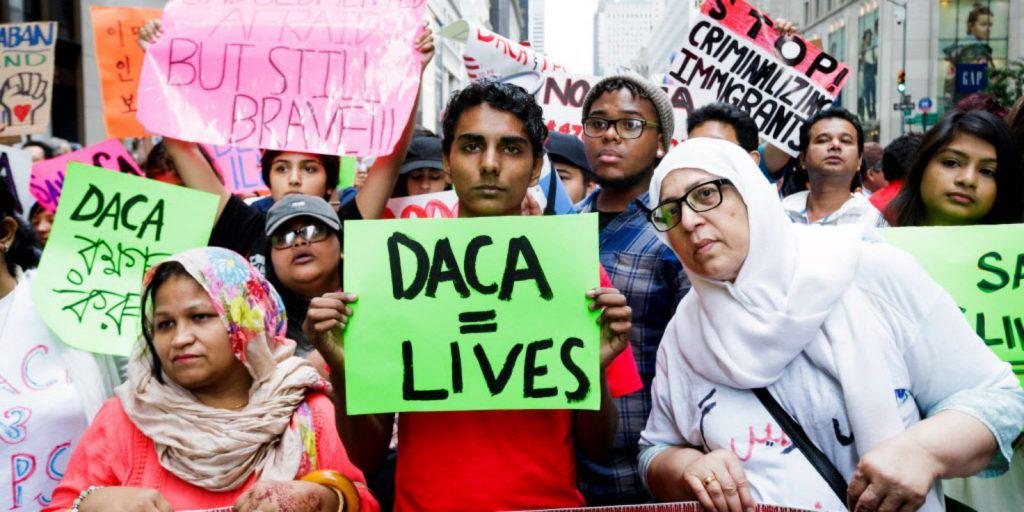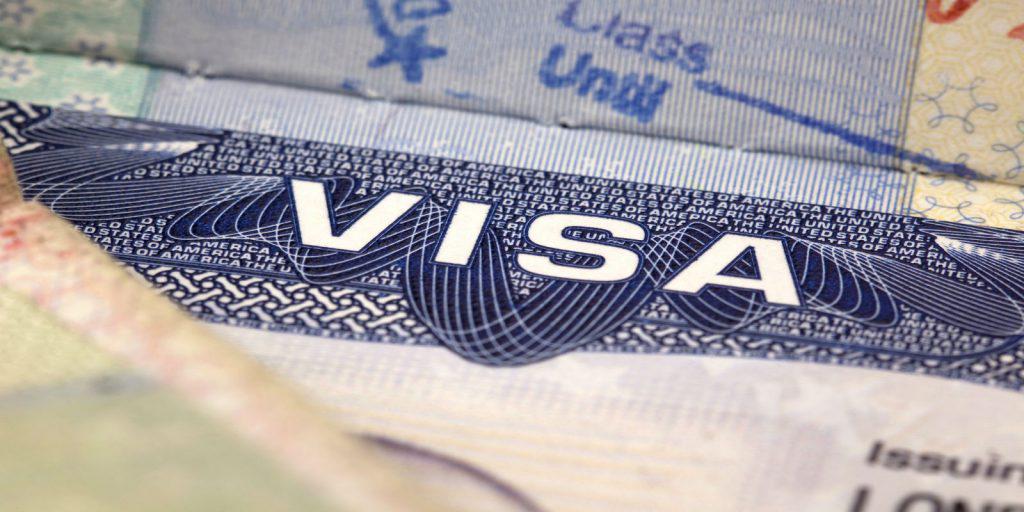Trump Administration Rescinds DACA

2019-08-12 22:07:54
In a June 15, 2012, memorandum, the Obama Administration announced the Deferred Action for Childhood Arrivals (DACA) initiative. Since USCIS began accepting DACA applications, almost 800,000 persons have been granted DACA. President Trump pledged to end DACA as part of his campaign platform, and after his inauguration, a draft Executive Order titled Ending Unconstitutional Executive Amnesties was leaked in news reports. However, he also made positive comments about Dreamers after becoming president, and his Administration continued adjudicating both initial and renewal DACA applications.
On June 29, 2017, Texas and nine other states sent a letter to Attorney General Jeff Sessions stating that legal action would be taken to challenge DACA unless DHS agreed to “phase out” the program by rescinding the 2012 DACA memo and halting approval of any new or renewal DACA applications. On September 5, 2017, President Trump yielded to their demands and rescinded the DACA program.
How did the Trump administration rescind DACA? On September 4, 2017, Attorney General Jeff Sessions sent a letter to DHS Acting Secretary Elaine Duke stating the DACA was an “unconstitutional exercise of authority by the Executive Branch” and that legal challenges to the program would “likely” result in DACA being deemed unlawful. On September 5, 2017, Acting Secretary Duke issued a memorandum officially rescinding the program.
What does September 5, 2017, DHS memo say? The September 5, 2017, memo and accompanying FAQs rescind the June 15, 2012, memorandum, allow current DACA recipients to keep their work authorization and deferred action grants until they expire, and take the following steps to end the DACA program:
- Initial DACA Applications: USCIS will adjudicate properly filed initial DACA requests and associated applications for work authorization that were accepted by USCIS as of September 5, 2017. USCIS will reject any initial DACA requests received after September 5, 2017.
- Renewal DACA Applications: USCIS will adjudicate renewal DACA applications and associated applications for work authorization that have been accepted by USCIS as of September 5, 2017. USCIS will also continue to accept renewal applications through October 5, 2017, which are filed by DACA recipients whose benefits will expire between September 5, 2017, and March 5, 2018. USCIS will reject all DACA renewal requests that do not fit these parameters, including all applications received after October 5,
- Applications for Advance Parole Based on DACA Grants: Effective September 5, 2017, USCIS will not approve any DACA-based applications for Advance Parole (Forms I-131). Any pending applications for advance parole will be administratively closed, and USCIS will refund the filing fees. Although DHS also stated that it will generally honor the validity period for previously approved applications for advance parole, the FAQs note that CBP retains the right to refuse admission to a person who presents themselves at a port of entry as a matter of discretion.
- Current EADs that Are Lost, Stolen, or Destroyed: The DHS FAQs state that individuals can still apply to replace a valid EAD that has been lost, stolen, or destroyed.
Can people with currently valid Employment Authorization Documents (EADs) based on DACA still work? Yes. Any individual with a currently valid EAD can continue to work lawfully. DHS stated that it would not terminate or revoke previous grants of DACA or work authorization solely based on its decision to rescind the DACA program.
What if a DACA recipient is currently outside the U.S. but has a valid Advance Parole document? According to the September 5, 2017, memo, DHS generally will honor the validity period for previously approved applications for advance parole. That means that DACA recipients who are currently outside the U.S. with a valid advance parole document should be able to reenter the country as long as they seek to reenter before the expiration of the advance parole. However, it is important to keep in mind that CBP maintains the position that advance parole does not guarantee admission to the United States. In addition, DHS may revoke or terminate a grant of advance parole at any time, including while your client is outside the U.S., which would inhibit or prohibit their ability to return. Therefore, DACA recipients who have a valid advance parole document but have not yet left the country should carefully consider whether travel would be advisable given the risks.
Will people with currently valid DACA grants be targeted for enforcement? People who have currently valid DACA grants and EADs still have deferred action, and DHS should not be arresting or deporting them absent intervening conduct that would make them ineligible for DACA. However, even before the rescission of the program was announced, there were a number of reports of DACA recipients being targeted for enforcement.
Will people whose DACA grants have expired be targeted for enforcement? In its FAQs released on September 5, 2017, DHS stated that “[i]nformation provided to USCIS in DACA requests will not be proactively provided to ICE and CBP for the purpose of immigration enforcement proceedings, unless the requestor meets the criteria for the issuance of a Notice To Appear or a referral to ICE under the criteria set forth in USCIS’ Notice to Appear guidance (www.uscis.gov/NTA).”2 [Emphasis added.]


